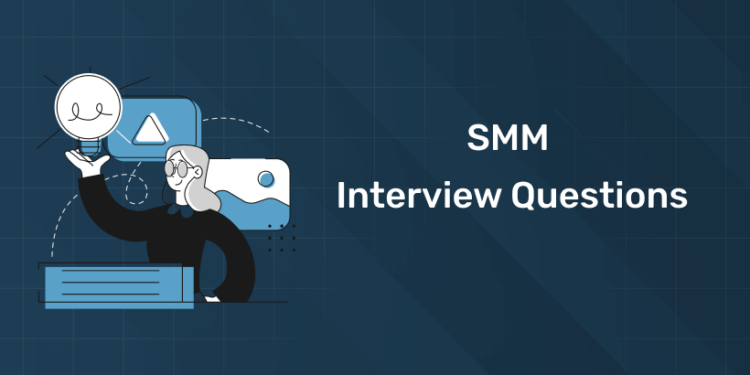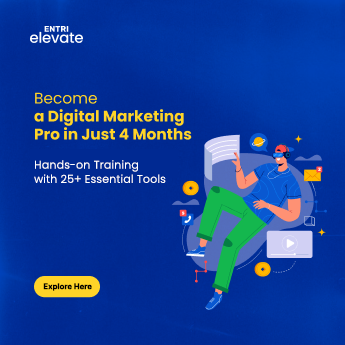Table of Contents
Social Media Marketing (SMM) is a part of modern digital marketing. With social media platforms growing companies are relying more on SMM professionals to increase their online presence and engage with their audience. If you are preparing for SMM interview, you should be well aware of the basics of SMM. In this post we will cover SMM interview preparation tips and top SMM interview questions and answers.
SMM Interview Preparation Tips
- Basics: Know the basics of SMM, different social media platforms, their audience and their features.
- Stay Up to Date: Social media trends change fast. Stay updated with the latest trends, tools and best practices of SMM.
- Show Your Experience: Be ready to talk about your past SMM campaigns. Highlight your successes, challenges and how you overcame them.
- Metrics and Analytics: Know the key metrics of SMM like engagement rate, reach, impressions and ROI. Be ready to explain how you use these metrics to measure success.
- Creativity and Strategy: Be ready to talk about your creative process and strategic approach to develop and execute SMM campaigns.
- Familiarize with Tools: Know various SMM tools like Hootsuite, Buffer and social media analytics platforms.
Learn Digital Marketing Fundamentals! Get Free Demo Here!
SMM Interview Questions and Answers
1. What is Social Media Marketing?
Answer: Social Media Marketing (SMM) is the use of social media platforms to promote products, services or brands. It involves creating and sharing content, engaging with followers and running paid ads to achieve marketing and business goals.
2. How do you decide which social media platform to use for a campaign?
Answer: The choice of social media platform depends on the target audience and campaign objectives. For example, LinkedIn is for B2B marketing, Instagram is for visual content targeting younger audience and Facebook has diverse targeting options for various demographics.
3. Can you explain the importance of engagement in SMM?
Answer: Engagement means the interaction between a brand and its audience on social media, likes, comments, shares and direct messages. High engagement means the audience is interested in the content which helps in building a community, increase brand loyalty and visibility through social media algorithms.
4. How do you measure the success of SMM campaign?
Answer: Success of SMM campaign is measured by key metrics like engagement rate, reach, impressions, click through rate (CTR), conversion rate and return on investment (ROI). These metrics gives insights into the campaign performance and areas of improvement.
5. Tell me about a SMM campaign you managed.
Answer: We launched a campaign to increase brand awareness for a new product. We used a mix of content, influencer and targeted ads. The campaign resulted in 40% increase in followers, 25% increase in website traffic and 15% increase in sales in the first month.
6. How do you deal with negative comments or feedback on social media?
Answer: I address negative comments or feedback straight away and professionally. I acknowledge the issue, apologetic if needed and offer a solution or ask for more info to resolve. This shows the brand values customer feedback and is committed to improving the customer experience.
7. What do you do to increase engagement?
Answer: I create high quality, relevant content that resonates with the audience. I use interactive elements like polls, quizzes and live videos and encourage user generated content. Consistent posting and responding to comments promptly also helps.
8. How do you keep up to date with the latest trends and changes in social media?
Answer: I follow industry blogs, attend webinars and conferences and participate in online forums and groups. I also keep an eye on updates from social media platforms and test out new features.
9. What is influencer marketing in SMM?
Answer: Influencer marketing is where you collaborate with influencers to promote a brand or product. Influencers have a following and their endorsement can help increase brand visibility, credibility and reach a wider audience.
Learn Digital Marketing Fundamentals! Get Free Demo Here!
10. How do you create content for different social media platforms?
Answer: Each platform has its own characteristics and audience preferences. For example Instagram requires visual content, Twitter is about concise and timely updates, LinkedIn is professional and informative and Facebook is a mix of content types. I tailor content to fit the platform and audience.
11. What is social listening and how do you use it?
Answer: Social listening is monitoring social media channels for mentions of your brand, competitors and industry keywords. It helps you identify trends, gather feedback and engage with customers. I use social listening tools to track brand sentiment and adjust strategies accordingly.
12. How do you handle a social media crisis?
Answer: During a social media crisis you need to respond quickly and transparently. I assess the situation, acknowledge the issue, provide clear and accurate info and communicate regularly with the audience. Having a crisis management plan in place helps you navigate these situations.
13. Can you explain the importance of a content calendar in SMM?
Answer: A content calendar helps you plan and schedule social media posts in advance. It ensures consistent posting, aligns content with marketing goals and allows for timely changes. It also helps you track performance and keep a consistent brand voice.
15. What to avoid in SMM?
Answer: Inconsistent posting, ignoring negative feedback, not engaging with followers, only relying on organic reach and not tracking performance metrics.
16. What’s the purpose of hashtags in SMM?
Answer: Hashtags categorize and make content more discoverable. They help you reach beyond your followers and increase engagement. Using relevant and trending hashtags will amplify your posts.
17. How do you do competitor analysis in SMM?
Answer: Competitor analysis is monitoring competitors’ social media activity, content and engagement metrics. I use this to find gaps, understand industry trends and develop strategies to differentiate the brand and improve performance.
18. What are social media algorithms and how do they affect SMM?
Answer: Social media algorithms decide what content users see in their feeds based on relevance, engagement and user behaviour. Understanding these algorithms helps you create content that matches platform preferences and increases the chances of higher visibility and engagement.
19. How do you link social media with other marketing channels?
Answer: Linking social media with other marketing channels means creating a unified strategy that matches overall marketing goals. I ensure consistency across channels, use social media to amplify other marketing activity and track performance holistically.
Achieve exceptional results with Digital marketing techniques! Enroll Here!
20. Can you explain paid social media advertising?
Answer: Paid social media advertising increases reach and targeting. It allows for audience segmentation, brand visibility and drives actions like website visits, lead gen and conversions. Paid ads support organic activity and help you achieve your marketing goals more effectively.
21. How do you use analytics to improve SMM?
Answer: Analytics shows you the performance of your social media campaigns. I use this to find trends, understand audience behaviour, measure content effectiveness and adjust strategy. Continuous analysis helps you optimise for better results.
22. How do you grow social media followers?
Answer: Effective ways are creating engaging and valuable content, running contests and giveaways, collaborating with influencers, using targeted ads and engaging with the audience regularly. Consistent and authentic interactions will also build a loyal follower base.
23. How do you create social media content for different target audiences?
Answer: I segment the audience by demographics, interests and behaviour. I then create content that resonates with each segment, addressing their specific needs and preferences. This way I get higher engagement and relevance.
24. What’s the role of storytelling in SMM?
Answer: Storytelling humanizes the brand and creates emotional connections with the audience. It’s about sharing authentic and relatable stories that reflect the brand’s values, mission and vision. Effective storytelling can drive engagement and build a loyal community.
25. How do you keep social media content fresh?
Answer: Staying creative means trying out different content formats, leveraging trends, using user generated content and finding inspiration from everywhere. Regular brainstorms and being open to new ideas helps too.
Conclusion
1: What is the primary goal of SEO (Search Engine Optimization)?
Preparing for an SMM interview requires a solid understanding of social media platforms, strategies, and tools. By familiarizing yourself with common interview questions and answers, you can confidently demonstrate your knowledge and skills. Additionally, consider enrolling in a comprehensive digital marketing course, such as the one offered by Entri to enhance your expertise and stay competitive in the field.
For more information about Entri’s digital marketing course, visit Entri’s Digital Marketing Course
Frequently Asked Questions
What is Social Media Marketing (SMM)?
Social Media Marketing (SMM) is the use of social media platforms to promote products, services, or brands, engaging with audiences to achieve marketing and business goals.
How important is engagement in SMM?
Engagement is crucial as it reflects audience interest in your content, helps build a community, increases brand loyalty, and improves visibility through social media algorithms.
What metrics are used to measure SMM success?
Key metrics include engagement rate, reach, impressions, click-through rate (CTR), conversion rate, and return on investment (ROI).
What skills are essential for a career in Social Media Marketing (SMM)?
Essential skills include content creation, data analysis, strategic planning, community management, and proficiency in various social media platforms and tools.
How do you stay updated with the latest social media trends?
Staying updated involves following industry blogs, subscribing to newsletters, participating in webinars, and joining professional groups and forums.
Can you explain the difference between organic and paid social media?
Organic social media refers to free content and interactions, while paid social media involves advertising campaigns to reach a broader audience.
What is a social media content calendar, and why is it important?
A content calendar is a schedule that outlines what and when to post on social media, ensuring consistency and strategic content planning.
What tools do you recommend for managing social media accounts?
Recommended tools include Hootsuite, Buffer, Sprout Social, and Later, which help schedule posts, monitor engagement, and analyze performance.












